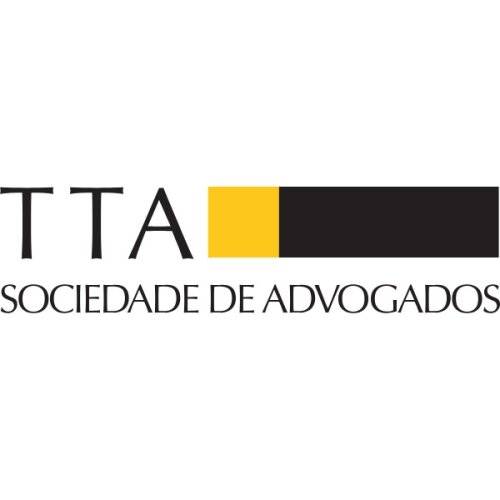Best Domestic Violence Lawyers in Mozambique
Share your needs with us, get contacted by law firms.
Free. Takes 2 min.
Free Guide to Hiring a Family Lawyer
Or refine your search by selecting a city:
List of the best lawyers in Mozambique
About Domestic Violence Law in Mozambique
Domestic Violence in Mozambique is a significant concern that is addressed under the country's legal framework. The Mozambican government and various advocacy groups recognize domestic violence as a grave violation of human rights and a barrier to achieving gender equality and women's empowerment. Legislation has been implemented to protect victims and provide them with legal recourse. The Law on Domestic Violence Against Women was enacted in 2009, marking a significant step in addressing and prosecuting domestic violence cases. This law aims to protect victims, punish perpetrators, and prevent domestic violence through awareness and education.
Why You May Need a Lawyer
There are multiple reasons why a person affected by domestic violence in Mozambique might seek legal help:
- Protection Orders: Obtaining a protection order from the court to ensure immediate safety and protection from the abuser.
- Legal Representation: Having a lawyer to represent you in court and during legal proceedings can be crucial, especially if the case goes to trial.
- Understanding Rights: Legal experts can provide crucial guidance to help victims understand their rights and the protections available under Mozambican law.
- Custody and Child Support: In cases where domestic violence affects children, legal assistance may be required to ensure their safety and welfare through custody arrangements and child support.
- Divorce Proceedings: Victims of domestic violence may need legal advice handling divorce proceedings and asset division.
Local Laws Overview
Mozambique's Law on Domestic Violence Against Women establishes severe penalties for violent acts and mistreatment within domestic relationships. Key aspects of this law include:
- Definition of Domestic Violence: The law defines domestic violence to include physical, emotional, sexual abuse, and economic oppression.
- Punishments: Assigns criminal penalties that can include imprisonment and fines for perpetrators of domestic violence.
- Protection Orders: Provides a mechanism for victims to obtain a legal order to prevent further abuse.
- Confidentiality: Ensures the protection of the victim's identity and confidentiality of proceedings to encourage reporting and participation in legal processes.
- Government and Community Role: Encourages state and community involvement in preventing domestic violence and supporting victims through educational and preventive measures.
Frequently Asked Questions
What qualifies as domestic violence under Mozambican law?
Under Mozambican law, domestic violence includes physical, sexual, psychological, and economic abuse occurring within a domestic setting.
Can men be victims of domestic violence in Mozambique?
While the law primarily focuses on violence against women, men can also be victims. The principles of human rights and gender equality are applied in legal prosecutions.
What should I do if I am a victim of domestic violence?
Report the abuse to local authorities or seek assistance from organizations that provide support for domestic violence victims, and consider obtaining a lawyer for legal protection.
How can I obtain a protection order?
File an application at the local court for a protection order. A lawyer can assist with the process to ensure your safety and the protection of your rights.
How effective are protection orders in Mozambique?
Protection orders are legally binding and require the abuser to refrain from specific actions, offering protection and legal recourse if violations occur.
What support is available for children affected by domestic violence?
The law provides mechanisms to protect children, including custody arrangements and child support, to ensure their safety and well-being.
Are there counseling services available for victims?
Yes, numerous non-governmental organizations and some government agencies offer psychological and counseling services to support victims.
How can I report domestic violence to the authorities?
Violence can be reported to local police stations or other relevant authorities. It's advisable to provide as much evidence and information as possible.
Is there any legal aid available for domestic violence victims?
Yes, several NGOs and government programs offer free or subsidized legal aid to victims to help them navigate the justice system.
What role do NGOs play in addressing domestic violence in Mozambique?
NGOs play a critical role in advocacy, support, legal aid, and educating the population on the issue of domestic violence and the resources available.
Additional Resources
Several resources are available to support those affected by domestic violence in Mozambique:
- Ministry of Gender, Children and Social Action: Provides support services and resources for victims.
- NGOs: Organizations such as Women and Law in Southern Africa (WLSA) and Associação Moçambicana das Mulheres de Carreira Jurídica offer legal aid, counseling, and advocacy.
- Local Police Departments: Trained officers can provide assistance and facilitate the legal process for victims.
- Healthcare Facilities: Hospitals and clinics can offer medical care and document injuries for legal cases.
Next Steps
If you are affected by domestic violence and require legal assistance in Mozambique, consider taking these steps:
- Seek immediate safety and report the incident to local authorities.
- Contact organizations or governmental bodies that provide support to victims of domestic violence.
- Consult with a qualified lawyer specializing in domestic violence to explore legal options and support mechanisms.
- Seek psychological support and counseling to help manage the emotional impact of the violence.
- Gather evidence, such as medical reports and documentation of the abuse, to aid your case.
Remember, you are not alone, and there are legal and community resources available to support you through this challenging time.
Lawzana helps you find the best lawyers and law firms in Mozambique through a curated and pre-screened list of qualified legal professionals. Our platform offers rankings and detailed profiles of attorneys and law firms, allowing you to compare based on practice areas, including Domestic Violence, experience, and client feedback.
Each profile includes a description of the firm's areas of practice, client reviews, team members and partners, year of establishment, spoken languages, office locations, contact information, social media presence, and any published articles or resources. Most firms on our platform speak English and are experienced in both local and international legal matters.
Get a quote from top-rated law firms in Mozambique — quickly, securely, and without unnecessary hassle.
Disclaimer:
The information provided on this page is for general informational purposes only and does not constitute legal advice. While we strive to ensure the accuracy and relevance of the content, legal information may change over time, and interpretations of the law can vary. You should always consult with a qualified legal professional for advice specific to your situation.
We disclaim all liability for actions taken or not taken based on the content of this page. If you believe any information is incorrect or outdated, please contact us, and we will review and update it where appropriate.
Browse domestic violence law firms by city in Mozambique
Refine your search by selecting a city.










